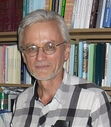Alexander J. Motyl's Blog, page 18
September 4, 2013
Opting for Deutsch in Ukraine
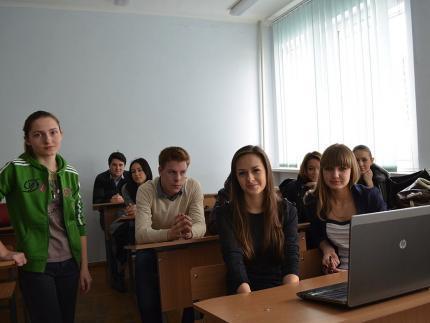
Ukrainians are voting with their tongues, and they appear to be voting for Europe. In a little-noticed statistic just released by Ukraine’s Ministry of Education and Science, 52 percent of the country’s fifth-graders chose German as their second foreign language in the forthcoming school year. With another 14 percent of fifth-graders opting for French, 1.6 for Polish, and 1.2 for Spanish, non-Russian European languages accounted for 69 percent of their choices, while Russian accounted for 23—a ratio of three to one in favor of the former.
Since 92 percent of all grade-schoolers already study English as their first foreign language, it’s clear that a linguistic sea change is taking place in Ukraine.
Twenty-five years ago, before independence, the only Ukrainians with a proficient knowledge of Western languages were those who studied them at university or attended elite schools (or worked for the KGB), while all Ukrainians had to be fluent in Russian. Unsurprisingly, their worldview was largely defined by their relationship, whether positive or negative, with Russian culture. Within a few years, it’s quite possible that the vast majority of Ukraine’s young people will be conversant, and possibly fluent, in English and German. Most of them will still speak Russian with varying degrees of facility, but their civilizational and cultural choices will now be a function of their encounter with and understanding of a different world.
Knowledge of English and German is no guarantee of liberalism and democracy, of course, but the ability to easily navigate among a multiplicity of cultures and countries can only enhance young people’s disdain for hierarchy, authoritarianism, intolerance, and provincialism. The effects won’t be felt immediately, but, within 10 to 15 years, expect this cohort of globally savvy Ukrainians to have very different values, norms, hopes, and expectations from their still-Sovietized elders.
Knowledge of Western languages is also likely to have a far-reaching impact on Ukrainian society. At present, about 70 percent of Ukrainian children study in schools with Ukrainian as the language of instruction. The statistic conceals important regional variations. In western Ukraine, the percentage is in the high 90s. In eastern and southern Ukraine, it’s significantly smaller, with village schools being primarily in Ukrainian and urban schools primarily in Russian. In Donetsk, for instance, 28 percent study in Ukrainian-language schools. In Odessa, it’s 52 percent. In Luhansk, it’s only 13 percent.
Notwithstanding what the language of instruction is at school, the fact of the matter is that, with print media, television, pop music, and cinema so overwhelmingly Russian—Russia’s cultural products have completely saturated the Ukrainian market, so much so that you’ll be hard-pressed to find a Ukrainian-language publication at a newsstand anywhere in Ukraine—it’s virtually impossible not to develop, by osmosis, a working knowledge of street Russian.
Ukrainian parents know that. They know that their fifth-grade kids will learn to speak some form of Russian anyway, even without trying. Acting as perfectly rational agents out to “maximize” their children’s “utility,” parents understand that knowledge of English and a second European language such as German, French, Polish, or Spanish will give their children a leg up over the kids who study Russian as a second foreign language. A middle-school graduate able to converse in Ukrainian, English, German, and street Russian will have far greater economic opportunities, whether at home or abroad, than a student with literary Russian, English, and Ukrainian. The former will be able to travel to and study in the West, work for Western multinationals in Ukraine, or get a job in a Russian company. The latter may be better qualified to teach Russian in Donetsk, Luhansk, and Odessa, but, other things being equal, will be a less attractive job candidate than the former in a rapidly globalizing world.
Expect the 23 percent of the parents who opted for Russian progressively to recognize their mistake. If so, the drift toward Western European languages should accelerate over time and street Russian will increasingly dominate literary Russian. Will parents in Donetsk, Luhansk, and Odessa follow suit and enroll their children in schools that give them greater linguistic flexibility or will they stick to literary Russian? The rational choice would be to opt for linguistic flexibility.
Consider, then, what the overall result might be in, say, a decade. As young Ukrainians become fluent in literary Ukrainian and street Russian as well as proficient in English and some other major European language, their country will finally be ready to join the world—while the tongue-tied Regionnaires currently running the country will be left behind.
Photo Credit: Aliona Lyasheva
OG Image: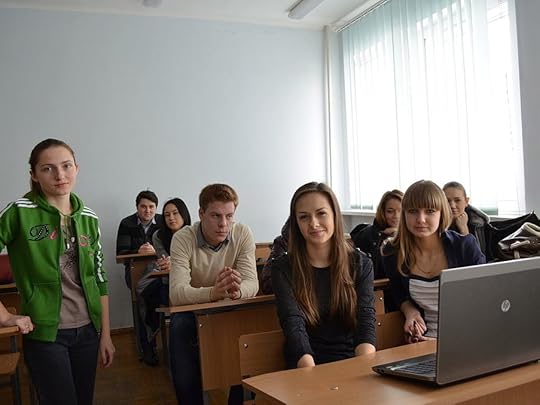
August 30, 2013
The Resilience of Ukrainians, Despite Yanukovych
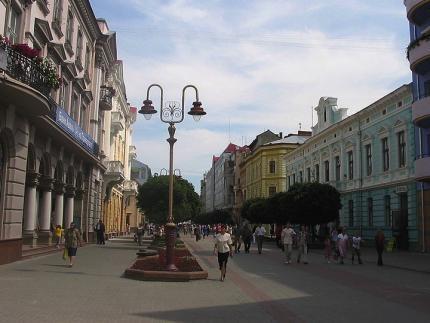
Nothing quite lifts my spirits about Ukraine’s liberal-democratic prospects like an extended trip to the country. Reading the websites and blogs leaves me feeling pessimistic and bilious. The news is usually bad—Ukraine’s journalists know how to dig up the Yanukovych regime’s seemingly endless supplies of dirt—and the popular response often seems too anemic: a demonstration here, a flag-waving collection of irate citizens there, and little else. As persuaded as I am that the regime is incompetent, weak, brittle, and doomed, it’s sometimes hard to escape the conclusion that, just maybe, it’s my hopes and expectations and theoretical schemes that are incompetent, weak, brittle, and doomed.
And then I visit the country and interact with its people and come away feeling that so boorish and cloddish a regime can’t possibly survive long when facing so smart and resilient a population.
The most amazing thing about the country is that, after close to 25 years of economic mismanagement and political misrule and despite every effort made by the Regionnaires to thwart the people and sabotage their well-being, many Ukrainians not only manage to scrape by, they’re actually doing relatively well. Forget the statistics and take a walk in any Ukrainian city or town. The number of cafes and restaurants, especially in such larger places as Kyiv and Lviv and Odessa, is up to Western standards. And the joints are full, while the prices are anything but dirt cheap. Look at the cars. There are too many to be the sole property of Regionnaire fat cats and oligarchs. Or take a ride on the Hyundai fast train from Kyiv to Kharkiv: the prices are outrageous by Ukrainian standards, but the trains are packed with regular people, and not just shady biznessmeny.
Imagine how well the country would be doing if the Regionnaires took a long hike and the mega-intrusive, mega-incompetent, and mega-bloated Ukrainian state bureaucracy were to go on a crash diet. I wager that Helmut Kohl’s vision of East Germany’s transformation into a “blossoming landscape” might just come true in Ukraine’s vast steppes.
Resilience is the key word here. In that sense Ukrainians are exactly like their neighbors, Poles and Jews. You can knock them down, you can beat them up—but they keep getting on their feet and starting all over again. It’s small wonder that the oppressors eventually lose. Poles have shown what they can do when given a chance in post-communist Poland. Jews have done the same in Israel. Give Ukrainians a chance in their own country, and I have no doubt the brain drain out of the country will reverse itself.
I’ve also concluded that the brain drain from Ukraine is no big deal. So Ukraine has lost a whole bunch of educated people. So what? It’s not as if those who’ve stayed are all dolts and flakes. No less important, ambitious people emigrate all over the world and somehow the world keeps chugging along. Most important, to fixate on the “best and the brightest” is to forget what makes countries thrive. Americans have an obsession with super stars, the super rich, and even superheroes—as if it were they who made countries rich. Not so. In reality, it’s the regular folk—the hardworking regular folk—who make countries prosperous, if the institutional conditions are right and if they are allowed to place their shoulders to the grindstones and reap the benefits of their labor. If the conditions are lousy, as they are in Ukraine, no one prospers, neither the superheroes nor the regular folk.
That’s why I’m bullish on the country. The supposedly best and the brightest have left and are leaving, the Regionnaires are stealing as if there were no tomorrow, and yet, and yet, the regular folk are managing to live, and some of them are managing to live well. With that kind of resilience, the people can’t lose and, with a little luck, this past August 24th may have been one of Viktor Yanukovych’s last official celebrations of Ukraine’s independence.
OG Image: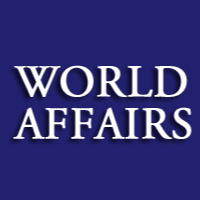
August 27, 2013
Russia’s Trade War Against Ukraine Will Backfire
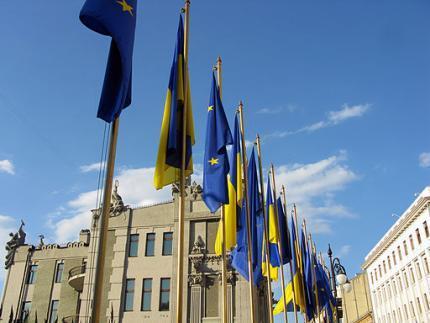
Stupidly, if not unexpectedly, the Putin regime has declared a trade war on Ukraine in order to force it to turn away from an Association Agreement with the European Union and, instead, join the Customs Union consisting of Russia, Belarus, and Kazakhstan. The war will be painful for Ukraine, but its expected effect is highly unlikely to happen, demonstrating, once again, just how little Russia’s elites understand Ukraine and Ukrainians.
On August 14th, Ukrainian exports to its northern neighbor came to a halt after Russian authorities imposed onerous border procedures on vehicles transporting Ukrainian goods. Since 25 percent of Ukraine’s exports go to Russia, a prolonged blockade could cost Ukraine as much as $2.5 billion in 2013. The Kremlin (which, as a recently leaked document appears to suggest, apparently has developed a ramified neoimperialist strategy vis-à-vis Ukraine) obviously expects these numbers to persuade the Yanukovych regime that the Customs Union is its least worse option.
That expectation is misplaced for several reasons.
First, the Yanukovych regime has amply demonstrated in the last three years that the well-being of Ukrainians is the least of its concerns. Ukrainian living standards could drop catastrophically as a result of Moscow’s actions, and President Yanukovych and his entourage wouldn’t lose a wink of sleep.
Second, since the Yanukovych regime’s number-one priority is its own well-being, Russia’s trade war, inasmuch as it erodes some of that well-being, will only lead Yanukovych, his Family network, and their many cronies to view their erstwhile ally with mistrust, suspicion, and disdain. The very last thing they’ll now want to do is join the Customs Union and thereby put themselves and their wealth in a position of permanent dependence on Moscow’s whims.
Third, Yanukovych and the Regionnaires pride themselves on being tough. Some, like the president himself, have a criminal background; others, like the pogromchiks who periodically attack the democrats with fists, are just street thugs; all of them refuse to be bullied and pushed around. Like American mafiosi, they want, above all, respect. The Kremlin’s obvious belief that it can treat the Yanukovych regime as a bunch of lily-livered punks is the ultimate insult to the “goodfellas” running Ukraine.
Fourth, Ukrainians are tired of being pushed around—by their own government and by outsiders. Even though the vast majority of the population (in both east and west) views Russians quite positively, they resent being treated as second-class citizens, younger brothers, Little Russians, uncivilized savages, and the like. Part of that resentment has been directed at the hypocrisy of the European Union’s effort to make travel for ordinary Ukrainians so difficult while simultaneously insisting on Ukraine’s adherence to EU norms. Much of that resentment will now be redirected toward the Putin regime, whose punitive economic measures are obviously intended to affect Ukrainians’ already fragile lives.
Fifth, Ukrainians appear to be increasingly committed to the integrity and viability of their own state. According to a recent study conducted by the Ukrainian Institute of Social Research and the Social Monitoring Center, 61 percent of Ukrainians would vote for independence in a referendum today. That may not seem like much, until one considers that the number was 56 percent in 2001, when the Ukrainian economy began to recover from a decade-long depression, and 47 percent in 2011, after five years of Orange mismanagement. No less significantly, opponents of independence comprised 28 percent in 2001 and 2011, and 21 percent in 2013. Another survey, by the “Rating” Sociological Research Group, indicates that a surprisingly high 46 percent say they’d defend Ukraine with arms. Clearly, three years of Regionnaire mismanagement have led Ukrainians to value what they still have: a country. If so, then Russia’s neoimperialist aspirations and inability to acknowledge Ukraine’s difference will only stiffen their resolve to remain independent—and outside the Customs Union. As one Russian-speaking Ukrainian commentator wrote: “If you have enemies, that’s bad. If those enemies are idiots, that’s good.”
Take all these factors together and you may conclude that President Yanukovych will soon discover his “deep” and “unwavering” love of Ukraine and wrap himself in the Ukrainian flag. As a pro-Russian stance can appeal to no more than 21 percent of the population and, more important, undermine his Family’s wealth, what else is there to do but turn toward one’s people and claim to be their national champion? As Samuel Johnson said in 1775, “Patriotism is the last refuge of the scoundrel.” Who knows? Perhaps Europe will turn out to be the last refuge of Ukrainian scoundrels.
Photo Credit: Magnus Manska
OG Image: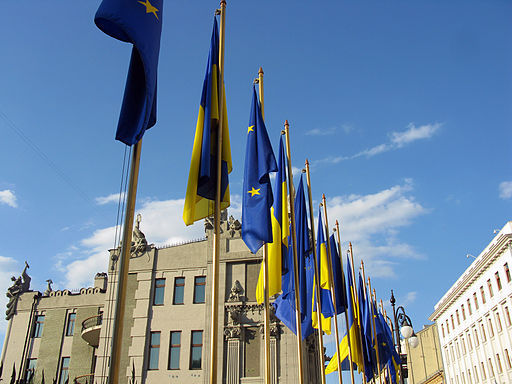
August 15, 2013
Corruption and Crumbling Roads in Ukraine
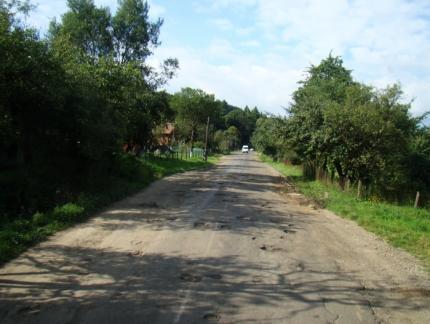
Leave the city and drive along Ukraine’s rural roads and you’ll come away with a heightened appreciation of the everyday heroism of the country’s drivers. Although the vast majority of Ukraine’s roads—with the notable exception of the nicely paved thoroughfares leading up to Regionnaire palaces—are a complete mess, the people who have to negotiate these roller-coasters on a daily basis actually manage to survive their experiences and retain their good humor.
So there you are, just outside some city, and you’re coasting along at some 50 mph until, all at once, everybody, both you and the oncoming traffic, comes to a snail’s pace. For there, spread out before you like a World War I moonscape, are holes and craters of various sizes and depths. As a friend of mine said as we were driving south of Lviv: “This isn’t a road. It’s a direction.”
Cars and trucks, including twelve-wheelers, weave their way among them, moving from right lane to left and from left to right with a motion reminiscent of the English waltz. In the United States, this would be an excellent opportunity to engage in some serious road rage. Not in Ukraine. No one honks, no one lets loose with a string of curses, no one bumps the other guy’s vehicle. They just weave in and out, rocking back and forth and up and down as they maneuver their way in and around and through the shallowest potholes.
(Here’s something I learned. If you’ve got to go through a hole, go through the widest one. The bumps are likely to be less jarring than what you’d encounter if maneuvering through a smaller pothole. Don’t ask me why: that’s just the way things are. Here’s another thing I learned. Avoid at all costs driving on such roads in the rain. The holes fill up quickly and, because the road glistens evenly thanks to the rain, you can’t tell where the holes are and where the road is.)
Everyone agrees that the roads have gotten significantly worse in the last year. Which, at first glance, is odd, since the Yanukovych regime spent big bucks fixing roads in preparation for the Euro 2012 soccer championship last summer. Part of the answer for the bad roads is the exceptionally severe winter that battered the country. Another part of the answer is that Ukraine’s roads were mostly built more than 50 years ago and have been neglected since then. But another, perhaps the largest, part of the answer is Regionnaire theft.
It’s been estimated that the roads, airports, and soccer stadiums the Regionnaires built last year were significantly more expensive than their counterparts in other countries. That’s obviously not because Ukrainian labor is that much more expensive. It takes little imagination to conclude that the cost overruns were due to the fact that regime theft of government resources has skyrocketed since Viktor Yanukovych became president in 2010.
So when they say they’re building or fixing roads, don’t believe it. All expenditures in Ukraine and especially expenditures on infrastructure are, first and foremost, Regionnaire self-enrichment schemes. Only after everybody’s gotten his cut will whatever remains be spent on what the entire amount was supposed to be spent on. And since the remaining amounts tend to be measly, the efforts that go into construction tend to be correspondingly measly. Naturally, the roads will be built and the potholes will be filled—but with inferior or stretched materials that quickly crumble after a few poundings by storms or trucks.
After all, in Ukraine as elsewhere, “ya gits what ya pays fer.” The Ukrainian state pretends to fix Ukraine’s roads and the result is multiple “directions,” and not roads. In contrast, the Ukrainian state paid real money for Yanukovych’s palatial playground north of Kyiv and, unsurprisingly, the presidential estate has not been reported as having any problems with the quality of its infrastructure.
Ukraine’s Regionnaire vice premier, Oleksandr Vilkul, reported on June 7th that the state would be investing heavily in road building and repair in the next five years. Vilkul’s promise is obviously part of Yanukovych’s 2015 campaign strategy and, given the president’s abysmally low ratings, it will convince only die-hard Yanukovych supporters. Even if the government really intends to disburse some money for roads, Ukrainians know that only a portion will actually be spent on concrete projects. The Yanukovych Family reportedly takes a cut of every big deal. The president’s cronies, pals, and ministers take a cut, too. As do the various lower-level Regionnaire power-holders. The Regionnaire-controlled construction firms that win the rigged tenders will skim off some more. At the end of the day, only a portion of the original amount will be left for the projects. The asphalt will hold up until the presidential elections and then crumble. With any luck, so will the Yanukovych regime.
Photo Credit: Silar
OG Image:
August 8, 2013
Interview with a Young Ukrainian Poet
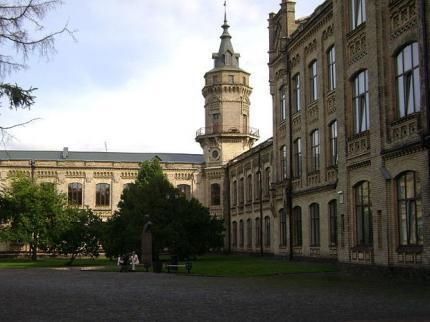
Vadym Miroshnychenko is a 28-year old Existentialist poet, cultural studies expert, and instructor at the Kharkiv State Academy of Culture. He and I became virtual acquaintances about a year ago, when he first sent me some of his poems. I was very impressed by their wit and wisdom and even agreed to write a brief introduction to his forthcoming collection. Below is an interview I recently conducted with him.
When did you start writing poetry?
I had some exceptional literature teachers, both poets and literary scholars, and am therefore quite familiar with global literary trends. I started writing poetry more or less seriously as a university student. Creativity doesn’t just flow from internal and external stimuli. You need to experience a genuinely “marginal condition.” And that’s what happened with me.
How would you characterize your poetry?
Writing poetry is a decidedly harmful occupation, both for the poet and for his friends. The only thing I can write about in my poems is my internal condition. Simply stated, I write about the things that excite me: women, alcohol, fear, death, love. And I try to write as openly and as honestly as possible. I know I’m walking above an abyss, but I don’t care. I have no desire to improve the world and to live a long and happy life. I just capture images, transform them into words, and write them down. Often, I write under the influence. I’ve realized that, physically and existentially, I cannot not write. I also know that some people actually need what I write.
Which poets and writers influenced you most?
Most of all Sergei Esenin, Jim Morrison, and Charles Baudelaire; then Michel Houellebecq, Joseph Brodsky, Mykola Khvylovy, and Mykhaylo Semenko. I also like Friedrich Nietzsche’s poetry. I’ve been influenced by various forms of Existentialism and therefore have a special appreciation for Existentialist poets and writers. I have a very intimate relationship with them; you might call it a blood tie. The writers who are closest to my worldview include St. Augustine, Fyodor Dostoevsky, Franz Kafka, Jean-Paul Sartre, Georges Bataille, Michel Houellebecq, and Charles Bukowski. I’m continually in dialogue with these writers and often turn to them for advice.
Tell us what working as a professor at the Kharkiv State Academy of Culture is like.
I’ve been teaching for three years. Because the Kharkiv Academy is a humanitarian institution, the general atmosphere is creative (although I take that word with a grain of salt). Ever since I was a student I had a single goal: to exist within a creative state (I dislike the term “being involved with creativity”) in all possible senses of the word. Eventually that happened. I can’t say that teaching per se gives me great pleasure in the Barthian sense of the word. I can’t always speak about the things that interest me professionally. Sometimes I’m struck by the fact that teaching is such a sad affair: your confrontation with never-changing youth is a constant reminder of the rapid flow of time.
On the other hand, I get to develop my interests in full in my research. I have over 50 academic publications in cultural studies, philosophy, and literary criticism in a variety of leading journals in Poland, Ukraine, and Russia. Most of my work centers on the Russian religious philosophy of Semyon Frank and on such conceptual issues as the phenomenon of enquiry, madness, the concept of “this,” the initial approach, cultural universality, decisiveness, the problem of dialogue. I’ve also written an unpublished novel and a collection of poetry.
What sort of students do you have?
The students and my interaction with them do give me a thrill. I try to show students what life is really like, to get them to think freely, to teach them to read and interpret complicated texts. Some listen, some don’t. But that’s normal. There are some highly gifted students who can convey an interesting idea, write a good paper, and formulate a concrete idea. Unfortunately, most have an average level of knowledge, don’t care to read, and don’t want to turn on their minds. They pay for their education, have no desire to exert themselves, and want only a diploma.
What is life like working for Ukraine’s Ministry of Education?
I feel the weight of the Ministry all the time. There’s talk of raising the teaching load of instructors. The Ministry wants to raise the number of student-teacher ratio from 12 to 20 (as far as I know, it’s about 6 to 10 abroad). If this happens, the educational system will collapse. The Kharkiv Academy has already cut ten positions and there are more to come. The planned cuts will affect mostly young and ambitious instructors and scholars. Meanwhile, keep in mind that the starting salary of a junior instructor with a candidate’s degree [roughly equivalent to a Ph.D.] is about 600–700 hryvnia a month, or less than $100. (That’s for half-time work; junior instructors rarely get full-time jobs.) The total teaching load can be as high as 1,500 hours annually.
It’s obviously impossible to do research and engage in scholarly work under such conditions. Moreover, having a candidate’s degree is no guarantee of a job: you also need contacts and good luck. I was especially lucky: I wrote a good dissertation and happened to receive good reviews from well-known scholars. Unsurprisingly, the academic titles of candidate and doctor have lost much of their value in Ukraine: degrees are handed out for poor dissertations, and then these people take to teaching students! As to the almost total corruption within the universities, I have nothing to say. Don’t think I’m whining: these are all dry facts. So who needs this kind of Ministry of Education?
What are young people’s primary beliefs, hopes, and concerns? Are they interested in politics?
The general situation is quite simple: young people are little interested in politics. They view politicians either negatively or neutrally. Sure, some young people have a critical attitude toward local and national politicians, but they never go beyond empty chatter. And discussions take place mostly within social media and only rarely in academic settings. More decisive action would be necessary to overcome the total passivity and low level of political culture. Worse, most kids are willing to sell their votes and get paid to attend rallies. Perhaps things will change in the future.
I’ve also noticed an interesting, though worrisome, tendency: young people think of politicians as freaks (and, of course, they have a point). You can see this quite well in my own city, Kharkiv. The social media are full of posts, memes, gags, and videos of our odious governor and mayor (as well as of our president, prime minister, and many others). The commentary is irrelevant. All that matters is that kids gets used to the “funny” pranks of our statesmen and then vote for the “clever” politician regardless of his actions.
You describe your views on Facebook as “liberal.” What does that mean for you?
I can’t call my views purely liberal. Indeed, I’m rather critical of all ideologies. But, if forced to choose, I’m closest to the “liberal conservatism” of the Russian philosopher Semyon Frank, which is subsumed under a religious philosophy. That is, liberalism is less a political project and more an ethical, philosophical, and religious one. As Frank put it: liberal conservatism rests on an “unbreakable bond between the free creation of progress and the continuity between life and culture.”
What sort of liberal Ukraine would you like to see?
I’m not about to predict a liberal or liberal-conservative future for Ukraine. As a matter of fact, I don’t think that pure or synthetic ideologies have a future in Ukraine.
Photo Credit: Горбачук Олександр
OG Image:

August 4, 2013
Mugging FEMENist Protesters in Ukraine
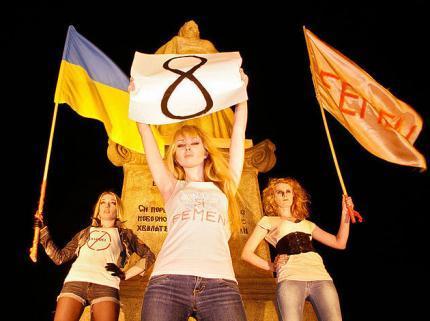
The first attack took place in downtown Kyiv on Wednesday, July 24th, sometime between 10 and 11 at night. Several goons beat to a pulp Vyktor Svyatsky, a political scientist who serves as adviser to the FEMEN group of Ukrainian women activists, whose bare-chested demonstrations have been a constant thorn in the sides of both the Putin and Yanukovych regimes. (Take a look at Svyatsky’s photo after the beating.)
The next attack took place in Kyiv in the evening of Saturday, July 27th. This time, a single goon pummeled FEMEN leader Hanna Hutsol and stole her notebook computer. (Take a look at her photo.)
One beating might be a random mugging. Two, especially in so short a time span, suggest a pattern that warrants asking two related questions: Who did the beatings? And why?
Given other detentions and beatings taking place during the same period, it seems nearly certain that this is part of a strategy orchestrated by the Yanukovych regime. The same Saturday as the second attack, at around 4 p.m., the Kyiv militia detained three FEMEN activists, charged them with public nudity, and subsequently beat them up. They were fined on Sunday for “petty hooliganism.” The FEMENists insist they were clothed when arrested, though they were apparently on the way to a demonstration that would have presumably involved public nudity. So who’s telling the truth? The militia’s version is unpersuasive, as the arrest took place far from where the demonstration was scheduled to occur, raising the question—why would the FEMENists have bared their breasts before the demonstration?
It’s worth mentioning that it would surprise no one if a Putin hack or henchman was involved as well. After all, the Russian president flew down to Kyiv for the celebration of the 1,025th anniversary of the adoption, in 988, of Christianity by the Kyivan prince, Volodymyr (Vladimir in Russian; later canonized). There was a big to-do on July 27th involving the Orthodox Churches, President Putin, and President Yanukovych. And it was that to-do, which FEMEN called “a holy meeting of post-Soviet dictators headed by KGB agents in frocks” (a reference to the disreputable secret-service pasts of the heads of the major Orthodox leaders), that the FEMENists were hoping to disrupt.
Neither Yanukovych nor Putin (nor, for that matter, the Putin-friendly Patriarch Kirill of the Russian Orthodox Church) would have wanted their carefully orchestrated Slavic love-fest to be upstaged by the FEMENists. Both regimes have employed freelance thugs to attack democratic demonstrators in the past, and there is ample reason to think they would do so again. But the attackers could just as easily have been employees of the militia, special forces, or security services of either country. After all, it’s an open secret that Russia’s spies freely trawl Ukraine and have numerous agents, as well as agents of influence, in the country. The detained FEMENists say the militia told them their persecutors were members of the Security Service of Ukraine (a charge the service’s official spokeswoman denies).
Svyatsky’s attackers openly told him that his beating was just a warning to FEMEN to lay off the festivities. When the FEMENists refused to be cowed, it was Hutsol’s turn to be beaten, and her colleagues’ turn to be detained.
Hutsol believes that both Putin and the patriarch were behind the beatings. As she later told the German broadcaster Deutsche Welle: “This is a continuation of their attempts to intimidate FEMEN … As fighters for freedom and democracy, we’ve conducted many actions in Russia and Ukraine against the dictator, Putin, and the growing influence of the Moscow Patriarchate … The brutality of these latest attacks on us is the personal revenge of Putin and Gundyayev.” (Gundyayev is Patriarch Kirill’s last name.)
Meanwhile, a few hours before Hutsol was beaten, at a meeting with the heads of the Orthodox Churches, Yanukovych actually had the temerity to say the following. Try not to gag as you read the full official press release:
“Ukraine requires restoring Christian values in conditions of modern challenges,” the President noted. “Challenges and controversies of the modern world are without exaggeration extremely difficult. That’s why Ukraine and other countries need restoring of Christian values—foundation of public morality and spirituality,” Viktor Yanukovych said at the meeting with representatives of Orthodox churches and heads of church delegations that arrived to Kyiv in order to celebrate the 1025th anniversary of Christianization of Kievan Rus’. The Head of State expressed gratitude to the heads of churches for their efforts aimed at strengthening the unity in the Orthodox world.
That same day, both Yanukovych and Putin also joined the Orthodox church leaders in a “prayer” near Kyiv’s St. Volodymyr monument. “After the solemn measures,” according to Yanukovych’s press office, “the presidents venerated the relics and icon of St. Vladimir.”
My heavenly sources tell me that the good prince regrets his choice in 988 and is considering conversion to Catholicism, Judaism, or Islam.
Photo Credit: FEMEN Women's Movement
OG Image:
July 25, 2013
Misrepresenting History at the Kyiv Museum
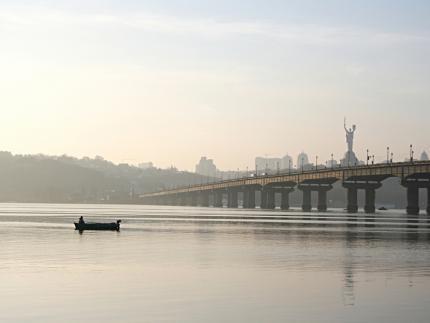
Does Kyiv have a history?
If you go to the Museum of the History of the City of Kyiv, you’re likely to conclude that the answer is a resounding No. You’re also likely to conclude that the people who set up the Museum at its present site a year ago have no idea of what the purpose of museums is.
The museum is currently lodged in a fancy new building on Khmelnytsky Street, just across the street from the Lesya Ukrainka Theater of Russian Drama. The building was constructed amid substantial controversy: its ornately neo-modernist, glass-and-steel-and marble, “Late Yanukovych” style doesn’t quite jive with its surroundings, while its very placement in a formerly open space creates a sense of intrusiveness and crowding on an otherwise leisurely thoroughfare. (To be slightly fair, the recently constructed German Embassy just up the road is just as much of an eyesore, and the Germans can’t blame their bad taste on the woes of transitional societies.)
Whatever the merits or demerits of the museum as a building, you’d think that as important an institution as the city museum would tell an interesting story and aspire to look professional. Not so.
The exhibit consists of two floors. I get there just after opening at 10:05 a.m. I pay my 30 hryvnia (just under $4.00) and take the stairs to the second floor. The first thing that strikes me is that there are wet spots all around the landing. Evidently, the cleaners had just finished their mopping. A woman standing near the entrance to the right greets me in Russian. I walk in and notice more wet spots on the exhibit floor. Before me and to the right are some artifacts from the Kyivan Rus era of about a thousand years ago. They’re enclosed in glass cases with crookedly placed pieces of paper identifying them. A stand holds a plastic-encased piece of paper with a typewritten narrative of a bit of Kyivan Rus history. Off to the right are several mosaics on the wall. They’re unmarked. I ask the woman where they come from. She says they’re copies. Of what? I ask. You should take the guided tour, she responds.
A few glass cases later, the Kyivan Rus period suddenly ends. Who were the grand dukes? Who were the princes? What actually happened in the several hundred years of its existence? The museum prefers not to say. And then, just as suddenly, I encounter a few glass cases from the Cossack period: some paintings, some articles of clothing, and the like. Who exactly were the Cossacks? What did they do? Who were their leaders? Once again, the museum, which is located on a street named after one of the most important Cossack leaders, is mum. And that may be just as well, because, inexplicably, the Cossack period suddenly morphs into a bunch of glass cases showing off everyday objects from the 19th and early 20th centuries.
Maybe the third floor will be better. There, too, the water on the landing and floor hasn’t quite dried. There, too, a woman greets me in Russian. I enter, and right before me is a wall and glass-case exhibit about the Ukrainian revolution of 1917–18. Highlighted are the anti-Soviet Ukrainian Central Rada and its president, the renowned historian Mykhaylo Hrushevsky. The accompanying text, encased in plastic, typewritten on a single sheet, and placed on a wobbly stand, presents a non-Soviet interpretation of this period of Ukrainian history. Next come a few cases with artifacts from several Soviet Ukrainian writers of the interwar period. The accompanying text mentions repressions, but the exhibit fails to illustrate them.
And then, all of a sudden, it’s World War II. One wall panel does mention the Nazi killing of Jews in Babyn Yar, but just about everything else is devoted to the uniforms, medals, and citations received by Soviet war heroes. If you’d like to know what life was like in Kyiv during the Nazi occupation, you’d be better off reading a book.
And then, with equal suddenness, the war is over and we’re in some indefinite postwar period. You’d think there’d be something about the architectural reconstruction of postwar Kyiv, about the dissident movement, about Communist Party leaders Petro Shelest and Volodymyr Shcherbytsky, about the Chernobyl nuclear disaster, but, once again, you’d be dead wrong. Instead, the exhibit concludes with a roomful of hodgepodge from the 1960s until today.
The bottom line is that this is unlike any exhibit of any history I’ve ever seen. There are no narratives, no stories, no highlights, no themes—just a bunch of almost randomly collected stuff. Stuff, needless to say, may make for a great flea market, but it doesn’t amount to a museum exhibit.
So who’s to blame for this disaster? On the one hand, the answer is simple: the museum’s director and curator (although the museum’s Facebook site does not say who they are). On the other hand, the answer is even simpler: the Yanukovych regime. The ministries of culture and education are run by Regionnaires committed to emptying Ukrainian history, culture, and language of all content and reducing them to footnotes of some grand Soviet/Russian narrative. The last thing the Regionnaires want is a capital city with a genuine history: that might suggest that Ukraine has a history and that—heaven forbid—Ukrainians have an identity.
OG Image:
July 18, 2013
Tips on Speaking Ukrainian
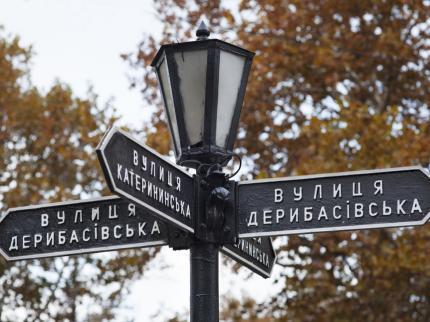
If you’ve ever heard Ukrainians speak Russian, you will have noticed that they almost always pronounce the Russian G as an H. Hence, gavaril (I spoke) will come across as havaril, gaspadin (mister) as haspadin, golod (hunger) as holod. Gorbachev will be Horbachev, Grozny will be Hrozny, Germaniya will be Hermaniya, and so on.
When Ukrainians transliterate their own names into English, you’d think that Hanna would, by this logic, be Hanna, that Ihor would be Ihor, and so on, right? Wrong. For some reason Hanna becomes Ganna and Ihor becomes Igor.
Awright, you must be thinking, in that case the English H should be a Ukrainian G, right? Or, at least, an English H should be a Ukrainian H.
Nyet.
English Hs remain Hs, except of course when they don’t: and then they become—no, not Gs—but KHs (as in Loch Ness). So, Houston is spelled and pronounced KHyuston, art house film is pronounced artKHous film, coffee house becomes coffee KHous, and so on.
OK, so what happens to English Gs? They meet the same fate as Russian Gs and become Hs. Hence, Washington becomes VashinHton, Goethe becomes Hoethe, Galsworthy become Halsvorsi, and so on.
Just in case you didn’t get it, let me summarize: Gs are always pronounced as Hs, while Hs are pronounced as Hs except when they’re pronounced as Gs or KHs. Got that?
I once wrote a column in some Ukrainian newspaper saying that there is no place in America called Khyuston and that the street bearing the same name in New York City is not Khouston, but Houston. Naturally, no one listened.
Well, if you can’t beat ’em, join ’em, right? Here’s President Viktor Yanukovych’s official biography, amended in the above spirit:
Viktor Fedorovycg Yanukovycg was born on July 9, 1950 in Yenakiyeve, Donetsk rehion. Ge hraduated from Donetsk Polytecgnic Institute (now Donetsk State Tecgnical University) in 1980 witkh a major in Mecganical Enhineerinh. Ge obtained Master’s Dehree in International Law at tkhe Ukrainian Academy of Foreihn Trade in 2001. Viktor Yanukovycg is a member of tkhe Academy of Economic Sciences of Ukraine, PgD in Economics. Ge kholds awards “For Merit” of tkhe first, second and tkhird dehrees, Gonored Transport Worker of Ukraine. Viktor Yanukovycg’s core public activity is being tkhe Gonorary Leader of tkhe Party of Rehions. Ge is married to Lyudmyla Yanukovycg. Ge was elected deputy of Donetsk Rehional Council (1999), people’s deputy of tkhe Verkgovna Rada of tkhe fiftkh convocation (2006), people’s deputy of tkhe Verkhovna Rada of tkhe sixtkh convocation (2007). Viktor Yanukovycg was elected tkhe President of Ukraine by tkhe results of national vote on February 7, 2010. On February 25 ge swore tkhe oatkh of tkhe President of Ukraine.
Hey, it makes sense to me.
One more thing. Most Ukrainian publications refer to Russians with Ukrainian versions of their first names. Thus, Vladimir Lenin appears as Volodymyr, Dmitri Medvedev is Dmytro, Nikita Khrushchev becomes Mykyta. This is a tad odd, since if you told a Russian-speaking inhabitant of Donetsk that his real name is Volodymyr, and not Vladimir, he’d have a hissy fit. And go try telling Aleksandr Solzhenitsyn that he’s really Oleksandr.
On the other hand, there’s something warm and fuzzy about this nativization of foreign names. (I once saw plaques in Italy commemorating Enrico Ibsen and Riccardo Wagner!) The only problem is that it doesn’t go far enough.
So here’s my suggested list of appropriate Ukrainian-to-English spellings:
Taras Shevchenko: Terry Shevchenko
Mykola Azarov: Niki Azarov
Ivan Franko: Johnny Franko
Dmitri Tabachnik: Dennis Tabachnik
Lesya Ukrainka: Ali Ukrainka
Yuri Andrukhovych: George Andrukhovych
Mykhaylo Hrushevsky: Mike Hrushevsky
Arsenii Yatseniuk: Arsenio Yatseniuk
Lyudmyla Yanukovych: Lady Bird Yanukovych
Yulia Tymoshenko: Jules Tymoshenko
Oleh Tyahnybok: Al Tyahnybok
Volodymyr Klitschko: Walter Klitschko
Vitaly Klitschko: Wally Klitschko
As I said: It makes sense to me. Oh, and by the way, my favorite American president is, of course, the great Yuri Washington.
OG Image:
July 11, 2013
Remembering the 1943 Volhynian Massacres
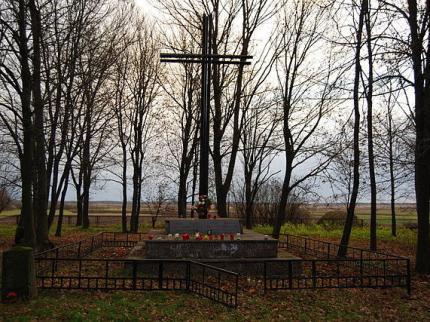
This month marks the 80th anniversary of the brutal Polish-Ukrainian conflict that tore apart Volhynia in 1943 and produced tens of thousands of deaths.
There are several points of controversy. First, just how many people were killed? Second, who did the killing and why? Third, how should the killings be characterized? And fourth, who should condemn the killings and/or apologize for them?
Estimates of Polish victims of Ukrainian violence range from 30,000 to 100,000 (the spread is reminiscent of the estimates for the Ukrainian famine of 1932–1933: 3 to 10 million); estimates of Ukrainian victims of Polish violence range from 15,000 to 30,000. All the estimates are “guesstimates.” After all, documentation is either non-existent or unreliable; it’s difficult to determine who was killed and who fled (and many thousands obviously fled); and survivors always have a tendency to inflate the numbers of victims (earlier estimates of those who died in the Gulag reached as high as 40 million, many times the real number). In addition, some people count only one region and a narrow time period; others look at several regions and many years. Considering that Ukrainians were extremely poorly armed, a 100,000:15,000 “kill ratio” strikes me as implausible: we’d expect that kind of imbalance from a conflict between a regular army and guerrillas. That said, it’s pretty clear that Ukrainians did far more killing than Poles. The difference in the number of casualties may be due to the greater ruthlessness of the Ukrainians or, more likely, to the larger size of the Ukrainian population in the contested region. Other things being equal, majorities usually outfight minorities, and the Poles were a minority in Volhynia.
Who carried out the killings? Fingers usually get pointed at Ukrainian nationalists on the one hand and Polish nationalists on the other. According to the simplistic narratives, both sides were presumably driven by their extremist ideologies—the Ukrainians by a desire to cleanse the territory of Poles, the Poles by a desire to keep the Ukrainians oppressed. The reality was rather more complicated. Volhynia was part of the Reichskommissariat Ukraine, ruled by the brutal Erich Koch, who treated Slavs as Untermenschen. By 1942–1943, the Germans were playing Poles off against Ukrainians, while Soviet partisans were making forays into and destabilizing the region. After Stalingrad, Polish nationalists hoping to control Volhynia in anticipation of a Nazi withdrawal were cooperating with the Soviets. Ukrainian nationalists were fighting the Germans and the partisans and, fearful of a Soviet return, also aspired to control the area. Given the depth of preexisting Polish-Ukrainian animosity (in large part caused by the oppressive policies of the interwar Polish state), it was no surprise that the violence erupted as part peasant Jacquerie, part armed resistance, part political struggle, and part ethnic violence apparently initiated by one Ukrainian nationalist guerrilla commander.
How should the killings be characterized? There is no doubt that they were “mass killings.” But were they also forms of ethnic cleansing, war crimes, and, perhaps, even genocide? Or were both sides simply conducting brutal “national liberation struggles” or a “war”?
The case for war is pretty strong. Both Ukrainians and Poles had armed forces and political organizations attempting to establish, to quote Max Weber’s definition of a state, “a monopoly of violence” in a given territory. When armies fight, we often call that a war. The case for national liberation struggle is also persuasive, as both Ukrainians and Poles were obviously hoping to free their nations from presumed oppression and build states. There is no doubt that both sides committed atrocities and war crimes, with Ukrainians probably committing more than Poles. The case for ethnic cleansing is weaker, inasmuch as the violence appears to have been only partly premeditated. The case for genocide is weakest. We usually restrict the term to the slaughter of hundreds of thousands, if not millions, and we usually insist that the perpetrators suffer few or no casualties. My own preference is for “ethnic violence,” a category that immediately places the Polish-Ukrainian conflict in a comparative framework and enables us to make sense of it in social-science terms. Whatever your preferred term, it’s clear that there was widespread savagery. For what it’s worth, contemporary Poles and Ukrainians can take heart from the fact that the atrocities their countrymen and countrywomen committed pale in comparison to the Gulag and the Holocaust as well as to scores of World War II mass killings such as Hiroshima, Nagasaki, Nanking, Dresden, Lidice, and Katyn.
Who should condemn the violence and killings? The answer is obvious: everyone. Whoever is concerned with violations of human rights in any part of the world has a moral obligation to condemn all violations of human rights in all parts of the world. But be careful. Human rights entail a huge responsibility: for your condemnation of violence by Ukrainians and Poles to be credible, you must be no less condemnatory of violence perpetrated by Americans, Russians, Germans, French, Chinese, Jews, Palestinians, Turks, Brazilians, Paraguayans, and everybody else. If only Ukrainian or Polish violence bothers you, than you are in fact being indifferent to human rights and pursuing a political agenda.
Who should apologize? It can’t be “Poland” or “Ukraine,” because neither state existed in 1943 (although there was a Polish government-in-exile in London) and neither existing state has the right to speak on behalf of individual Poles or Ukrainians in 1943. (And, besides, would it work for President Yanukovych to act as Ukraine’s conscience given the harm his own party has done to the country?) It can’t be “the Poles” or “the Ukrainians” either, because collective guilt does not exist.
Obviously, as in all cases of wrongdoing, the people who should apologize are the people who committed the wrongdoing. Truth and reconciliation committees along the lines of those in post-apartheid South Africa might be the way to go for both Poland and Ukraine: let the few surviving perpetrators confess and tell the truth and then go home.
Finally, the Ukrainian and Polish political organizations that claim lineage with their wartime undergrounds might want to issue apologies. They’ll protest on the grounds that apologies would sully their sacrifices on behalf of the cause. But they’d be wrong. The best way to underscore that their principles are grounded in genuine liberation and genuine freedom is to condemn unsavory aspects of their pasts and thereby signal that their visions of national liberation rest on an unwavering commitment to human rights for all.
Photo Credit: Grzegorz Naumowicz
OG Image:
July 4, 2013
Is Decentralizing Ukraine Possible?
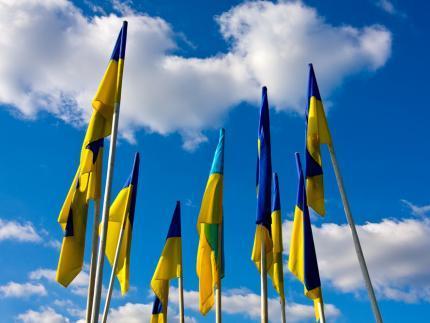
The Ukrainian state, as currently structured, is obviously dysfunctional. It claims to be unitary and centralized, but it lacks the capacity to be unitary and centralized. The result is the Yanukovych sultanate: a hierarchically organized and highly centralized polity that is incapable of sweeping the snow from capital city Kyiv’s streets.
What’s the solution? At one time, Yanukovych and the Party of Regions insisted that the answer was decentralization of power to the regions. As soon as they seized power in Kyiv and realized that centralization is the shortest route to wealth enhancement, their decentralizing aspirations went out the window, and Yanukovych the regionalist became Yanukovych the sultan. There was a time as well when the Regionnaires flirted with separatism for Ukraine’s eastern provinces. That, too, went the way of decentralization when they tasted the fruits of power.
Unfortunately, the Regionnaires aren’t alone in preferring centralization to decentralization. Every Ukrainian president—from Leonid Kravchuk to Leonid Kuchma to Viktor Yushchenko—has concentrated power in his hands. But remember: centralization is not some typically Ukrainian impulse. When left alone, most states at most times concentrate power. The American colonies moved from a confederation to a federation, Abraham Lincoln amassed great powers in order to stop Southern secession, and Barack Obama has actively pursued the buildup of what’s been called the “security state” in the “war on terror.” If decentralization occurs, it’s usually in the aftermath of some big crisis, when breakdowns take place or appear to be a distinct possibility and radical solutions suddenly appear plausible.
That said, the case for decentralizing power from a profoundly incompetent and corrupt central state apparatus in Kyiv to the provinces or regions is persuasive. It’s not that government will suddenly become more responsible and democratic. After all, there are crooks at all levels of Ukraine’s fabulously malfunctioning bureaucracies. The difference that decentralization can make is fivefold.
First, even if local crooks can steal with as much impunity as central crooks, they can’t steal as much. The opportunities for theft, being local, are by definition smaller. Second, local crooks may actually have a slightly greater incentive to do something for constituents who know where they live and with whom they may have once shared a beer. Third, local crooks have to rely on inefficient and underfunded local police forces to crack down on protesters—which means that coercion isn’t as viable an option for them. Fourth, local crooks may actually have an interest in improving living conditions in their locale: after all, they live there. And fifth, if locals are given more power, they can’t blame the center for their failings. Put these five factors together and it’s just possible that local populations will be able to exert some pressure on the crooks down the block and make them behave.
Most of Ukraine’s regional policymakers and populations probably wouldn’t object to decentralization. The problem is with the central authorities in Kyiv. For the Yanukovych Family to give up power is to commit political and economic suicide. Chances are that they’ll contemplate such an alternative only if a big crisis explodes and their backs are to the wall. If decentralization strikes the sultanate’s elites as the only means of saving their skins, they just might consider it (although I suspect they’d sooner pack their bags, abandon ship, and hightail it to the Riviera). Such a crisis would probably have to involve a series of local Orange revolutions in many of the provinces, and especially in the east. The way the Regionnaires are driving the country into the ground, that may not be as unlikely as it seems, but don’t hold your breath. Not yet, at least.
Another obstacle to decentralization is the more generalized fear among Ukraine’s political elites that it could lead to separatism, on the rationale that if you give ’em an inch, they’ll take a mile. Such fears are greatly exaggerated, though not because there are no secessionist tendencies. Ukraine’s eastern provinces have since the early 1990s consistently expressed a distrust of independence and a marked preference for unification with Russia or a return to the Soviet Union. Unfortunately for eastern Ukrainians, they’re ruled by Regionnaires, who will never permit their bailiwick to join Russia. Annexation by Moscow would immediately transform the Regionnaires from local crime bosses to Kremlin gofers and, far worse, subordinate them to Russian organized crime and oligarchs. The Yanukovych Family would go out of business in such dire circumstances.
Western Ukrainians, meanwhile, although they’re increasingly talking about their regional interests, are highly unlikely to separate from any political entity that bears some resemblance to their vision of Ukraine. Should the Yanukovych regime ever transform Ukraine into an anti-Ukrainian Little Russia, however, all bets would be off and secessionist tendencies in Ukraine’s west would certainly increase.
Imagine for a moment that, miraculously, Ukraine wakes up one day and finds itself divided in two halves. Would they be worse off? The East could join Russia. The West could join Europe. And everyone would live happily ever after. Except that it would never work. The European Union and NATO just might take a democratic, stable, and poor western Ukraine under their wing. But no semi-rational Russian state would ever voluntarily annex a rust belt seething with anger and doomed to underdevelopment.
One final point: whatever the solution to Ukraine’s ills—decentralization, separatism, democracy, rule of law, market relations—the single most important obstacle to any kind of change is the Party of Regions. If the Regionnaires secede, Ukraine has a chance. If they stick around for long, the country is pretty much doomed to, at best, permanent stagnation.
OG Image:
Alexander J. Motyl's Blog
- Alexander J. Motyl's profile
- 21 followers


